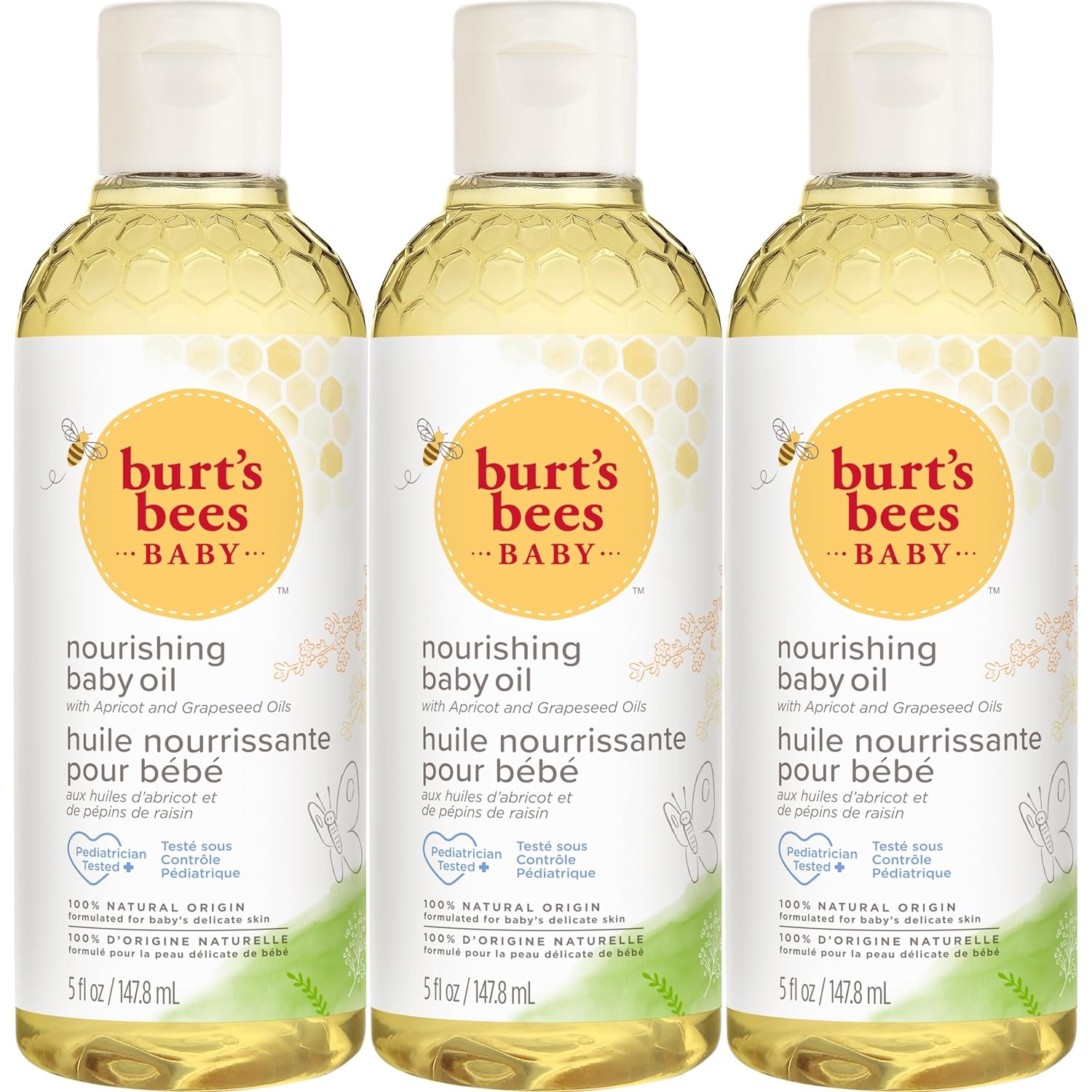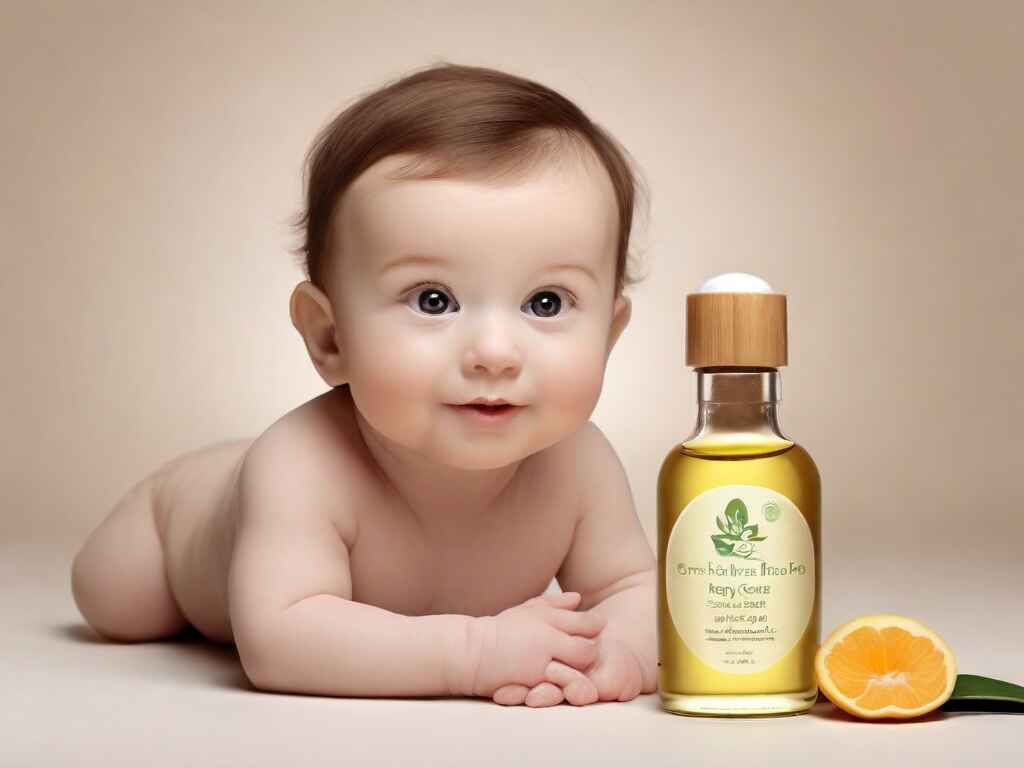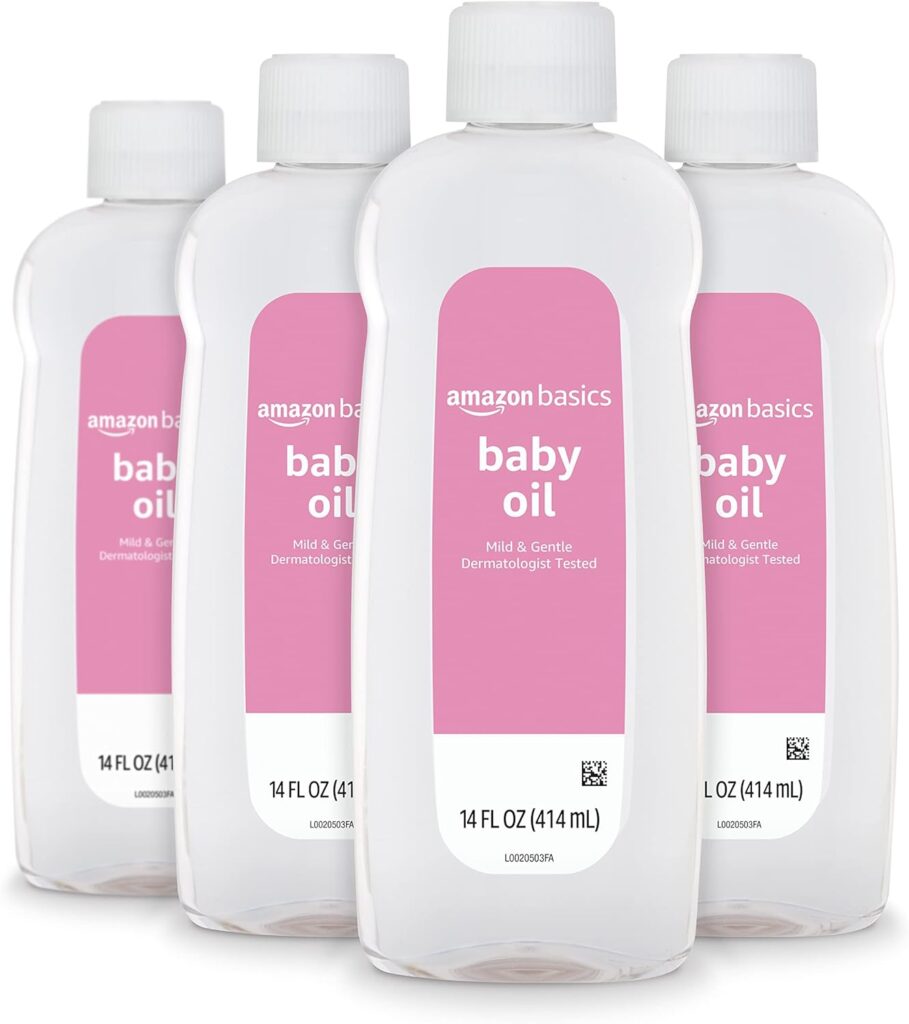Can Baby Oil Cause Skin Rash? Unveiling the Truth,baby oil can cause skin rash if you have sensitive skin or an allergy to its ingredients. It may trigger contact dermatitis, a form of eczema.
Discovering the right skin care products can be a delicate balance, given the variety of options on the market. Baby oil, known for its gentle formulation, is often a go-to product for adults and infants alike for its moisture-sealing properties.
Despite its widespread use, some individuals may notice redness, itching, or bumps after applying baby oil. Your skin’s reaction to baby oil hinges on individual sensitivities and allergies to its components, typically mineral oil and fragrance. Understanding your skin type and the ingredients to which it may react unfavorably is key to preventing unwanted skin irritation. For those susceptible to skin issues, consulting with a dermatologist before incorporating new products into their routine can provide added assurance. With care and attention, you can ensure the products you choose support your skin’s health and comfort.

Baby Oil Basics
Baby oil is a popular product among parents. It’s smooth and smells nice. It keeps a baby’s skin soft. Yet, some babies can get a rash from it. Now, we will find out why.
Composition Of Baby Oil
Baby oil mainly has mineral oil. It’s a clear, odorless oil. Some have aloe or fragrances added. These extra things make baby oil smell good. But they can also irritate a baby’s skin. Let’s see what goes into baby oil:
- Pure mineral oil: Sits on top of the skin and stops moisture loss.
- Aloe vera: Can calm skin but might be too much for sensitive types.
- Fragrances: These give a nice smell but can be harsh on delicate skin.
- Vitamin E: Added to some oils, helps protect a baby’s skin barrier.
Common Uses In Infant Care
In infant care, baby oil is famous for a few reasons. It does more than make the skin soft. Here’s what it is often used for:
| Action | benefit for Baby |
| Moisturizing | Stops skin from drying out |
| Massage | Makes touch gentle and soothing |
| Diaper rash barrier | Helps prevent chafing and irritation |
| Cradle cap treatment | Softens and helps remove flaky skin |
Can Baby Oil Cause Skin Rash? Unveiling the Truth, Baby oil works well for these things. But it’s key to watch for signs of a skin reaction. Not all oils suit all babies. If a rash shows up, stop using the oil. Talk to a doctor to find what is safe for your baby.
Skin Sensitivities And Allergens
Baby oil is a staple in many nurseries. Yet, what if it’s not just nurturing but also nurturing rashes? Some babies have delicate skin that reacts to certain products. Let’s unravel this issue.
Identifying Skin Allergens
Spotting a skin allergen requires a keen eye. A rash might not be immediate. Check for signs like redness or itching.
| Signs | Actions |
| Red Bumps | Monitor and record breakout areas |
| Itching | Apply a soothing lotion and observe |
| Dry Patches | Consult a pediatrician for advice |
Understanding Skin Sensitivity In Infants

Babies’ skin is super soft and also super sensitive. It’s thinner than adults, which makes them more vulnerable.
- Choose products wisely: Look for hypoallergenic labels.
- Patch-test new products: Try on a small skin area first.
- Review ingredients: Avoid dyes, perfumes, and harsh chemicals.
The Connection Between Baby Oil And Skin Rash
Baby oil, a popular product for infant care, is widely used to moisturize and protect delicate skin. However, not all skin types react the same, and for some, baby oil can lead to skin rash. Understanding the ingredients and their potential effects on sensitive skin is crucial for preventing undesirable reactions.
Can Baby Oil Cause Skin Rash? Unveiling the Truth
Potential Irritants In Baby Oil
Although marketed for sensitive skin, baby oil may contain ingredients that act as irritants. The primary component, mineral oil, is a byproduct of petroleum refining. While it is generally considered safe, those with more sensitive skin may find it occlusive, leading to irritation or clogged pores.
The Role Of Fragrances And Additives
Many baby oils include fragrances and additives to enhance the product’s appeal. These substances can be the culprit behind skin reactions:
- Fragrances: Often cause allergic reactions or dermatitis.
- Additives: These may include preservatives or colorants, potentially leading to skin irritation.
To minimize the risk, opt for fragrance-free or hypoallergenic versions of baby oil.
Symptoms Of Baby Oil-related Rashes
Baby oil is a popular product for softening and moisturizing a baby’s delicate skin. But sometimes, it can cause skin rashes. A rash from baby oil may show up as red patches, itchiness, or swollen skin. It’s vital to spot these signs early to avoid discomfort.
Recognizing Allergic Reactions
Look for these signs of an allergic reaction to baby oil:
- Reddened skin that appears soon after applying the oil.
- Small bumps or hives that may spread.
- Itching or burning sensation on the affected area.
- Swelling of the skin, which can sometimes be severe.
Differentiating Between Rashes And Irritations
Knowing whether it’s a rash or just irritation is key. Here’s how:
| Rash | Irritation |
| Typically has a distinct edge or pattern | More spread out and less defined |
| May have raised bumps or blisters | Usually flat and does not have clear bumps |
| Can cause severe itching | Often feels like a burn or sting rather than an itch |
Seek a doctor’s advice if the skin does not improve or worsens over time.
Risk Factors For Skin Reactions
Exploring the ‘Risk Factors for Skin Reactions’ is crucial when considering baby oil as a moisturizer. Certain babies may experience skin rashes as a response to the oil’s ingredients. Understanding what increases this risk is essential for parents to make informed choices.
Infants With Eczema And Sensitive Skin
Can Baby Oil Cause Skin Rash? Unveiling the Truth,Infants already battling eczema or those with sensitive skin are at a higher risk. The delicate skin barrier in such cases can react negatively to certain oils. Monitor your baby’s skin closely after applying baby oil.
- Check for redness or irritation post-application
- Use fragrance-free and hypoallergenic oils
- Avoid products with alcohol or harsh chemicals
The Impact Of Preexisting Skin Conditions
Babies with existing skin conditions like diaper rash or cradle cap might react differently to baby oil. Understanding your baby’s skin type plays a key role in this.
| Skin Condition | Precautions | Suggested Action |
| Diaper Rash | Keep the area dry and clean | Choose the oil that’s light and absorbent |
| Cradle Cap | Avoid heavy oils | Apply oil that moisturizes without worsening the condition |
Consulting with a pediatrician before using baby oil on affected skin is always best. Parents should opt for products designed to nurture and protect their baby’s unique skin.
Practical Tips For Preventing Skin Rashes
Soft skin is a top goal for babies and adults alike. Baby oil is a common product many use. But sometimes, it can cause skin rashes. Fear not! There are ways to keep skin happy and rash-free. Let’s talk about how to use baby oil safely.
Patch Testing Before Use
Always test before you leap into using baby oil. Here’s a neat way to check the skin’s reaction:
- Choose a small skin area, like the wrist.
- Apply a tiny bit of baby oil.
- Wait for 24 hours. No rush!
- Check for any angry skin signs. Redness or itchiness are key clues.
Safe Application Techniques
Using baby oil right matters. Here’s how to keep skincare simple and safe:
- Dab, don’t soak. A little goes a long way.
- Gentle circles. Massage the oil in softly.
- Skip the face. Baby oil on facial skin might clog pores.
- Dry skin first. Pat the skin dry before applying oil.
- No oil in baths. It can make tubs slippery. Safety first!
Alternatives To Traditional Baby Oil
Parents often explore alternative options to traditional baby oil, especially when concerned about skin rashes and irritations. Natural ingredients and DIY remedies can offer gentle, skin-loving benefits without the risk of harsh chemicals. Let’s delve into some skin-friendly alternatives that keep your baby’s delicate skin in mind.
Natural And Organic Options
Nature provides us with gentle, effective solutions for baby skin care. Consider the following options:
- Coconut Oil: Antibacterial and moisturizing, perfect for diaper rash.
- Shea Butter: Nourishing and healing for dry skin patches.
- Olive Oil: Rich in vitamins, great for general skin protection.
- Jojoba Oil: Mimics natural skin oils, ideal for overall use.
- Almond Oil: Hypoallergenic and lightly scented for sensitive skin.
Homemade Remedies For Baby Skin Care
DIY skin care lets you control the ingredients. It can be both fun and rewarding. Try these simple recipes:
- Oatmeal Bath: Grind natural oats and add to warm bath water for a soothing soak.
- Aloe Vera Gel: Use directly from the plant for rashes or dry skin areas.
- Chamomile Tea: Brew and cool down to use as a natural skin cleanser or bath additive.
Remember, always patch-test any new product or ingredient on a small skin area first. This ensures no allergic reactions occur. Simple, natural, and safe – these alternatives to traditional baby oil are worth considering for your little one’s skincare regimen.

Navigating Misconceptions About Baby Oil
Parents often wonder if baby oil is safe for their little ones. With so many opinions swirling around, it’s key to cut through the noise. Understanding which claims hold water and which ones are mere myths takes careful consideration. Let’s dive into the facts about baby oil and skin rashes.
Understanding the pros and cons of baby oil is essential for informed childcare. Some believe baby oil can lead to skin issues, while others swear by its gentleness. It’s crucial to assess the evidence before forming an opinion. Let’s explore the realities behind these beliefs.
Separating Myths From Facts
- Myth: Baby oil always causes skin rashes.
- Fact: Not all skin types react the same way to baby oil.
- Myth: Only synthetic oils are problematic.
- Fact: Even natural oils can irritate sensitive skin.
- Myth: If a product is labeled ‘baby’, it’s automatically safe.
- Fact: Babies’ skin can react differently to products, even those designed for infants.
Baby oils vary in ingredients and formulations. Some might cause reactions in babies with sensitive skin. Other products are hypoallergenic and specifically made for delicate skin. Consulting a pediatrician before using any product is always best.
Misinformation In Parenting Forums
| Common Claim | Reality Check |
| “All baby oils cause diaper rashes.” | It depends on the individual baby’s skin sensitivity and the type of baby oil used. |
| “You can use any oil for a baby massage.” | Select oils meant for babies, and do a patch test to ensure there’s no adverse reaction. |
| “Organic oils can’t cause allergies.” | Organic does not mean allergen-free. Babies can still have reactions to organic products. |
Advice from the internet is not always reliable. Conflicting information can easily lead to confusion. Always verify with trusted sources and consult healthcare professionals for personalized guidance.
Clinical Insights On Baby Oil Reactions
When it comes to baby oil, gentleness is often the first thought. But not all skins agree with what is labeled ‘gentle’. A rash from baby oil is a sign: that something’s amiss.
Expert Opinions On Risks
Dermatologists point out that baby oil, often mineral oil-based, can trap heat. This could lead to a heat rash, especially in warmer climates.
- Comedogenic issues: Baby oil can clog pores, says an expert.
- Sensitive skin reaction: For some babies, the oil might be too heavy.
- Fragrance concern: Added fragrances are potential allergens.
Caregivers should watch for redness or bumps after use, urges a pediatrician.

Research Studies And Findings
Recent studies shed light on why some infants develop rashes. Key points were:
| Study Focus | Results |
| Allergic reactions | Fragrances in oils can trigger allergies. |
| Oil texture | Thicker oils may irritate more. |
| Frequency of application | The daily application increases rash risk. |
When To Consult A Pediatric Dermatologist
As a parent, seeing your baby’s smooth skin develop a rash can be troubling. Baby oil is often used to moisturize delicate skin, but is it possible it could cause a skin rash? Understanding when to seek the help of a pediatric dermatologist is key. A specialist’s input becomes crucial when skin issues persist despite your care. Here are some clear signs that indicate it’s time to get professional advice.
Signs That Warrant Professional Advice
- Persistent Redness: If redness does not fade away within a few days.
- Unusual Rash: A rash with an odd shape, color, or texture.
- Discomfort: The baby seems in pain, scratching, or is irritable.
- Infection Signs: Oozing, swelling, or fever accompany the rash.
- No Improvement: The condition remains unchanged even after using hypoallergenic products.
Working With Your Child’s Doctor For Skin Care
Effective communication with your child’s dermatologist ensures better care. Share your observations, the products you’ve been using, and your baby’s reactions to them. Prioritize questions about:
- Skincare routine adjustments.
- Suitable products for your baby’s skin type.
- Signs of improvement or worsening conditions.
- Follow-up appointments and care plans at home.
Remember, a pediatric dermatologist is your ally in maintaining your baby’s skin health. Professional advice caters to your baby’s unique skin needs. Always ensure regular checkups for prompt detection and treatment of any issues.
Caring For A Baby’s Skin Post-reaction
Is your little one dealing with a skin reaction from baby oil? Don’t worry, it happens. The tender skin of babies can sometimes react to products. Proper care is key to soothing and healing your baby’s skin. Let’s guide you through the steps to nurture your skin back to health.
Healing Process And Soothing Techniques
Stop all products that caused the rash. This gives your baby’s skin a rest. Gently wash the affected area with water. Pat it dry with a soft, clean towel. Make sure your baby’s nails are trimmed. This prevents them from scratching the rash.
- Use hypoallergenic products designed for sensitive baby skin.
- Apply healing creams like zinc oxide or petroleum jelly. They create a barrier and help heal the skin.
- Choose loose clothing made from natural fibers. Tight clothes can irritate the skin.
- Keep the skin cool to reduce itchiness. Avoid direct heat sources.
Ensuring Long-term Skin Health
Maintain a skin-friendly routine even after the rash heals. Use gentle, fragrance-free products for your baby’s bath and lotions. Check with a pediatrician before introducing new products.
- Moisturize daily with creams suitable for your baby’s delicate skin.
- Stick to short, warm baths. Long soaks can strip the skin’s natural oils.
- Watch for skin changes. React quickly to any new signs of irritation.
- Create a comfortable environment with controlled humidity to prevent dry skin.
Empowering Parents With Knowledge
Understanding the delicate nature of a baby’s skin is crucial for parents. Finding the right information can prevent issues. Skin rashes are common but preventable. Parents need access to the right knowledge to safeguard their baby’s skin health. Baby oil, a popular product, may cause rashes in some infants. Knowing when baby oil is safe and when it might be harmful is essential. This section educates parents on baby care routines and resources.
Educational Resources For Infant Skin Care
Excellent care starts with reliable information. Parents should explore reputable sources for infant skin care guidance. Pediatricians and dermatologists offer expert advice. Many offer online articles and pamphlets.
- The American Academy of Pediatrics (AAP) provides guidelines on infant skin care.
- Trustworthy websites, like WebMD, detail how to spot and treat skin rashes in babies.
- Parenting forums and support groups share personal experiences and tips.
Books on child care also offer in-depth understanding. Local libraries and bookstores have dedicated sections. Videos and online courses can be engaging for visual learners. Some well-received online resources include:
- BabyCenter’s extensive library on baby health.
- KidsHealth’s videos explain baby skin conditions.
Building A Safe And Healthy Baby Care Routine
A well-planned routine is the backbone of healthy skin. Regular cleansing, moisturizing, and monitoring are the core elements. Each step should be done with gentle, baby-safe products. Baby oil is common for moisturizing but watch for signs of irritation.
| Step | Action | Watch Out For |
| Cleansing | Use mild, fragrance-free cleansers. | Redness, Dryness |
| Moisturizing | Apply hypoallergenic baby oil or lotion. | Rash, Irritation |
| Monitoring | Check daily for any changes in the skin. | New spots, Bumps |
Diaper changes offer a perfect opportunity to inspect skin. Change diapers often to prevent rashes. In case of skin issues, consult with a pediatrician quickly. They can advise if baby oil is contributing to the problem.
Remember, each baby is different. An individual approach is necessary. Always patch-test new products. Track reactions over 24 to 48 hours. This method ensures a safe and tailored routine.
Frequently Asked Questions For Can Baby Oil Cause Skin Rash
Can Baby Oil Trigger Allergic Reactions?
Baby oil can sometimes cause allergic reactions in individuals with sensitive skin or allergies to its ingredients.
Is Baby Oil Safe For All Skin Types?
Not all skin types react well to baby oil; test a small area first to ensure compatibility.
What Symptoms Indicate A Baby Oil Rash?
Signs of a baby oil rash include redness, itching, swelling, or bumps on the skin after use.
How Do You Treat Baby Oil Skin Rashes?
To treat baby oil rashes, stop using the product, gently cleanse the area, and consult a healthcare provider if necessary.
Are There Hypoallergenic Alternatives To Baby Oil?
Yes, there are hypoallergenic oils like coconut, almond, or jojoba that are gentler on sensitive skin.
Conclusion
In wrapping up, it’s clear that baby oil, like any topical product, carries the risk of skin reactions for some. Always patch test before widespread use and consult a dermatologist with concerns. Nurturing your skin’s health is paramount, and choosing products wisely is key.







